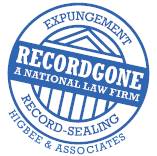On July 1, 2019, Nevada streamlined the process for decriminalized offenses to be sealed from a person’s record. Additionally, come January 1, 2020, employers can no longer discriminate against a user of the now legal substance. Finally, as of July 1, 2019 many of those convicted of felonies will have their voting rights automatically restored and some may not see them be restricted at all. These trio of bills will make it easier for those Nevadan former offenders to contribute to the economic vibrancy of the state and to be better engaged with their community.
In 2016, voters in Nevada legalized marijuana use and decriminalized many marijuana offenses. In 2019, Nevada legislators have followed up on this by passing two bills to update state policy to match the voter will. The first bill, AB 132, creates a framework that prevents employers from discriminating against an employee, or prospective employee, because a drug test resulted in a positive identification of marijuana use. Now that recreational marijuana is a legal substance in the state, the government no longer wants employees to lose employment or economic opportunity because they consume a now legal substance. It also recognizes the fact that marijuana can be found in the system of a consumer even if the consumer is not currently under its immediate influence. The law does keep some limitations, however, primarily for those working in public safety. The law permitting positive marijuana test results does not apply to firemen, emergency medical technicians, those who are required to operate a motor vehicle and for whom federal and state law requires frequenting screening, and to those employees whose employer has determined that the presence of marijuana would adversely affect the safety of others. Finally, AB 132 allows for an employee to submit their own drug test to rebut the results of a test taken in the first 30 days of employment by the employer. This law will go into effect at the start of 2020.
The second marijuana related law that goes into effect July 1, 2019 is AB 192. The law is not just specific to just marijuana, but instead focuses on streamlining the sealing procedure for all offenses that are currently decriminalized and may become decriminalized in the future. It provides the legislature flexibility if they decide to decriminalize future offenses. For the time being, its impetus is to help those who were convicted of marijuana related offenses that are now no longer criminal acts. The law provides an applicant a pathway to file for a sealing of decriminalized offenses where the burden is on the prosecutor to show a sealing should not be granted, and for the applicant to be able file without having to pay a filing fee. Once an application is filed with the court and served to the prosecuting attorney, the prosecuting attorney has 10 days to file an objection. If no objection is filed then the sealing will be granted without a hearing. If an objection is filed, the prosecuting attorney must demonstrate why the sealing should not be granted with “clear and convincing” evidence. It is important that these decriminalized offenses have a smooth pathway to record sealing because even as the state decriminalized these offenses, those items can still be part of an individual’s record and still carry the negative stigma of a criminal conviction and arrest.
Finally, this legislative session Nevada also amended the law surrounding the restoration of voting rights to those convicted of felonies. AB 431 simplifies when someone who is convicted of a felony will have their civil rights automatically restored and under what conditions voter registration is cancelled. Under the law prior to July 1, 2019, when a felon received their voting rights back depended on the level of the felony and when they were discharged from the sentence, either probation or imprisonment. It also required that the county clerk cancel the voter registration of those convicted of a felony. Under the new law, however, the county clerk will only cancel voter registration if the individual is convicted of a felony and is currently serving a term of imprisonment. Once released their right to vote would be restored and they would be able to file for re-registration immediately upon release. Additionally, the county clerk cannot require the elector to provide proof that they meet the conditions to re-register to vote. The law applies to all state residents, and is not specific to only those sentenced in Nevada’s jurisdiction. Keeping intact the sacred right to vote for those convicted of felonies is important in keeping those individuals still connected to their community, especially when they are serving their sentence among the community.
If you have a record in Nevada that needs to be sealed so you can finally move forward with your life, contact our law firm today! It helps to have a law firm with experience when filing for a Nevada sealing and our case specialists would love to help you as they have helped thousands of other clients before you. Our intake specialists can be reached at 877-573-7273 or you can take a free online eligibility test here. Contact us today so we can start helping you achieve your best future!



